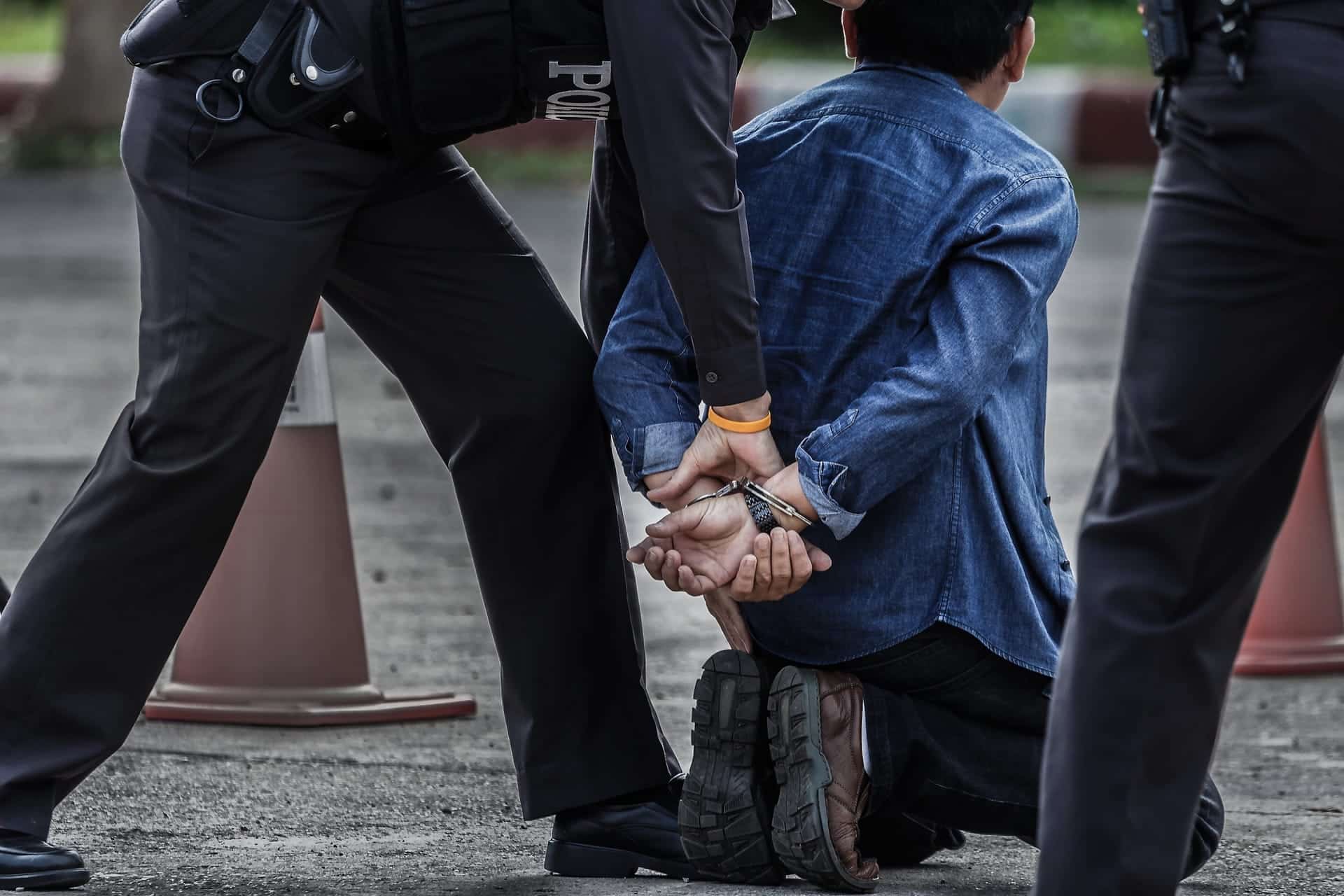Disorderly Conduct in Florida
Several acts constitute disorderly conduct (also known as breach of the peace) in Florida. Under Florida Statute 877.03, disorderly conduct is broadly defined as any crime that sullies public morals, offends public decency, disrupts the peace and quiet of others, or initiates a fight or brawl.
Since this offense is so vaguely outlined, law enforcement officers are often left to use their own judgment to determine whether an individual should be arrested on Florida disorderly conduct charges.
This means that some people could end up paying for crimes that they did not truly commit. This is one reason why seeking a criminal defense attorney who has experience and knowledge defending disorderly conduct charges is so important.
Some of the most common acts that can lead to disorderly conduct offenses include fighting, yelling or screaming in public, being verbally abusive to Florida law enforcement officers or other civilians, public intoxication, and traffic interference.
If you are arrested for disorderly conduct or breach of the peace in Orlando, or any surrounding areas, it is essential to contact an attorney as soon as possible. Parikh Law, P.A. has years of experience defending these types of cases and will work tirelessly to get the best possible outcome for your situation.
Contact us today for a free consultation and to learn more about what you can expect from our attorney-client relationship as we work to beach your charges of breach of the peace or violating public decency.

Examples of Disorderly Conduct
The purpose of disorderly conduct laws in Florida is to regulate conduct in public places. If an action occurs that is damaging or disturbing to other people, it can be considered an act of disorderly conduct. Disorderly conduct laws are designed to protect public morals and maintain order in society. In general, such conduct refers to any act that disturbs the peace or public order.
Because it can be tricky to specifically define disorderly conduct, it can be confusing to find yourself facing these charges. Some scenarios that could warrant a disorderly conduct charge include such acts as:
- Behaving loudly and belligerently in a way that directly interferes with a law enforcement officer’s ability to conduct an investigation or carry out another lawful duty. Delaney v. State, 489 So. 2d 891 (Fla. Dist. Ct. App. 1986)
- Improperly disposing of waste in a public area.
- Impeding traffic.
- Loitering and/or prowling.
- Smoking in a public elevator.
- Disorderly intoxication.
- Starting a riot.
- Instigating and engaging in a fight or brawl. M.L.J. v. State, 93 So. 3d 348 (Fla. Dist. Ct. App. 2012)
- Using language that is abusive or obscene in nature.
- Playing unreasonably loud music.
- Making a scene by participating in a loud argument.
- Tampering with or causing property damage.
Free Speech or Disorderly Conduct?
There are crucial differences between protected speech and disorderly conduct. Unfortunately, there are times that a police officer will misinterpret protected speech that can lead to a disorderly conduct case due to a misinterpretation of public decency acts.
Understanding the First Amendment
Under the First Amendment of the United States Constitution, the citizens of this nation are all entitled to freedom from persecution by the government for personal expression. This means that people are allowed to publicly express their feelings and thoughts reasonably without being fearful of censorship, harassment, or retaliation. This is not to say there are no boundaries to free speech. There are countless ways private citizens misinterpret the First Amendment, such as a defendant violating the peace or disorderly conduct. Instead, they are guilty of a criminal offense.
Disorderly Conduct Charges Diverge From First Amendment Protection
A law enforcement officer has a right to arrest someone engaging in disorderly conduct, even if that person is not breaking any other laws. To prove disorderly conduct, the prosecution must show that the defendant intentionally engaged in disruptive behavior that substantially interfered with the ordinary course of public business. Behaviors that may be considered disorderly conduct include fighting, yelling, cursing, or making obscene gestures.
It is important to consult with a knowledgeable criminal defense attorney to help you best understand your First Amendment rights if you have been arrested on the charge of disorderly conduct.
Penalties for Disorderly Conduct
Although disorderly conduct is not considered a “serious” charge, there are consequences for anyone found guilty. It is generally classified as a second-degree misdemeanor, which carries penalties such as sixty (60) days in jail and fines as high as $500.
Furthermore, if the charges are related to a brawl or fight, prosecutors may upgrade the charge to a first-degree misdemeanor. Penalties for first-degree misdemeanors include up to one (1) year in jail and fines as high as $1,000. In addition to these penalties, there is also a stigma about being convicted guilty of a crime. This can be difficult when seeking employment, obtaining professional licenses, and applying for schools.
How Does the State Prove Guilt?
Florida prosecutors are tasked with fighting for guilty convictions. They will use whatever resources necessary to achieve this goal. However, this does not always mean that they will. There are certain things that the State of Florida must prove for accusations of disorderly conduct in Florida to stand. If you are being accused of disorderly conduct, in order for you to be convicted guilty, the prosecution must show that:
- You behaved in a way consistent with a breach of the peace.
- Your actions are consistent with corrupt public morals.
- You disrupted the peace and quiet of others in a manner addressed by the Florida Statutes.
- You participated in a brawl or a fight.
- You disrupted an investigation by a law enforcement officer.
- You are charged with disorderly intoxication or public intoxication.
- Violations or a breach of peace on the premises of a licensed establishment.
- The violation falls under special rules that apply to an arrest at a licensed establishment.
- Acts that go against public decency or affect the safety of persons who may witness such behavior
If any of these examples are consistent with your charges, or even if your charges stem from different behaviors, contact our law firm to get legal advice from the best criminal defense attorney for your situation and learn more about the benefits of our attorney-client relationship.
A person violating peace or disorderly conduct laws in the first or second degree has the right to be represented by a criminal defense attorney who can help them navigate the Florida statutes and work towards a reasonable and fair outcome to their case.
Possible Defenses Against Florida Disorderly Conduct
Disorderly conduct is a highly defendable offense, and this is yet another reason why having a skilled and dedicated attorney in your corner proves to be invaluable. A conviction generally hinges on a police officer’s ability to prove that the defendant provoked a disruption that endangered public safety, went against a sense of public decency, or violated peace.
Disorderly conduct is not a mere annoyance, and such charges are easy to build a valid defense for and work towards having your charges dropped.
An attorney who truly understands disorderly conduct cases and takes the time to thoroughly review your case can determine which defenses are best suited to your specific situation.
This is especially important in instances of being charged with disorderly conduct since these types of arrests are often based on the subjective opinions of law enforcement officers and can result in jail time if a conviction is levied.
No one should be forced to pay for a crime they did not commit. Some defenses against conviction that can be used include:
- First Amendment right to free speech
- Self-defense
- Enhanced speech
- Occurrence in a non-public place
- Fighting words
Working with the right attorney is essential in criminal cases to prove whether or not the individual was simply acting unruly, the fighting words or belligerent attitude that a defendant engaged in may be an insufficient basis for charges, whether or not their behavior constituted self-defense, and determining if the charged act outrages public decency.
Understanding the specifics of these laws is essential in making sense of factual scenarios to determine whether or not they fit into the statutes that define this type of charge, and if so, to negotiate a reasonable time for imprisonment (or avoiding imprisonment entirely for persons who ultimately have a conviction).
The Importance of Hiring an Attorney
Just because disorderly conduct is not a higher-level crime in Florida, it does not mean that you should face unnecessary penalties. At Parikh Law. P.A., we believe that your time, energy, and goals are things that should be protected at all costs.
A conviction may come with prison time of up to sixty days for a breach of the peace or up to one year for additional acts, which should be challenged by an experienced attorney who can help you understand the Florida statutes and determine whether or not the arresting police officer was following the law or simply applying their inaccurate interpretation of these laws.
Police officers do not have the comprehensive understanding of the law that an attorney does, and we will be able to explore the situation in great detail during your initial consultation.
Attorney Rahul Y. Parikh not only has the skill and proficiency it takes to zealously defend your charges but also the goal of making the process of contesting criminal charges as easy and stress-free as possible.
We will work relentlessly to secure the best possible outcome in your case while always being available to answer questions and address any concerns you may have. Contact us today to set up your free case evaluation with Attorney Parikh.

